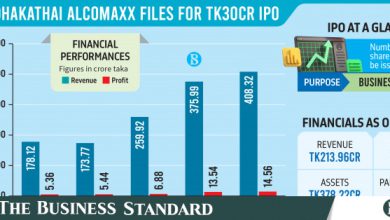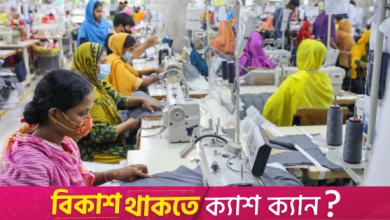Egg prices remain unchanged despite imports from India


The government’s initiative to import eggs to control the local market prices has yet to have any impact. Despite the import of eggs from India, the price remains steady, with a dozen eggs currently selling for Tk160-165 in retail markets.
In November last year, the government approved the import of 50 lakhs eggs from India, which were expected to arrive by 10 September of this year. However, only 292,000 eggs have arrived so far.
Mohammad Liton, an egg vendor at the Karwan Bazar in Dhaka, said, “The small quantity of eggs imported from India has not affected the market. For the past month, a dozen eggs have been selling for Tk155-160 in retail.”
During visits to Moghbazar and Hatirpool areas, it was observed that a dozen eggs were being sold for Tk160, while four eggs were priced at Tk55. Vendors confirmed that prices have remained stable over the past month.
On the other hand, small-scale poultry farmers have raised concerns over the rising cost of animal feed, which is driving up production costs.
They argue that reducing feed prices would lower production costs and naturally bring down the price of eggs. However, instead of addressing feed prices, the government’s decision to import eggs could severely impact local farmers. Many fear that small farmers may be forced to shut down their farms, leading to long-term instability in the egg market.
In a statement on 11 September, the Bangladesh Poultry Association (BPA) warned that they would halt egg and poultry production if the government does not stop importing eggs from abroad.
The association noted that Bangladesh’s daily demand for eggs is 4 crore, while local production currently exceeds this, with 4.5 crore eggs being produced daily. They argue that importing eggs will harm local farmers, forcing them out of business, which could lead to greater shortages in the future.
Sumon Hawlader, president of the Bangladesh Poultry Association, told TBS, “The livestock and feed syndicate mafia are exacerbating the crisis by allowing imports. On 22 September, we have a meeting with small-scale farmers, and we plan to file a case against the feed suppliers for charging excessively high prices. The cost of feed in our country is double that of the international market. It costs Tk7.50 to producean egg here, while in India, it costs only Tk5.50. We need to identify why production costs are higher here and take steps to reduce them.”
Hawlader also alleged that corrupt officials within the livestock sector, along with corporate companies and their agents, have contributed to the rising cost of poultry feed, driving up the production costs of eggs and chickens.
Meanwhile, market observations reveal that broiler chicken is being sold for Tk175 per kilogram, a price that has remained unchanged from the previous week.




